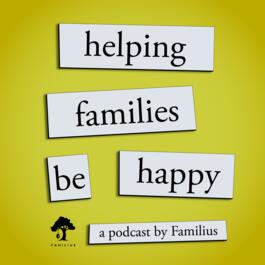
The Power of Play: Building Social and Emotional Skills in Early Childhood with Sarah Winkler
In this episode of the Helping Families Be Happy podcast, produced by Familius Publishing, host Adina Oberman speaks with Sarah Winkler, an experienced preschool teacher and mom of three. Sarah shares her expertise in play-based learning, emergent curriculum, and hands-on activities that inspire creativity, confidence, and curiosity in young children. Sarah explains how parents and educators can use simple, everyday moments to create meaningful learning experiences. She highlights the social, emotional, and cognitive benefits of play and offers practical tips for setting up engaging activities at home and in the classroom. This episode is packed with actionable advice for parents, caregivers, and teachers looking to nurture early childhood development and build stronger family connections through play. Episode Highlights [02:10] What Is a Lab School and How Does It Work? Sarah describes her unique teaching environment, which emphasizes hands-on, play-based education and training for future educators. [06:30] Why Play Is Essential for Early Childhood Development: Discover how play builds cognitive, social, emotional, and physical skills—and why it’s a child’s most important job. [10:45] Meaningful Play Activities for Home and Classroom: Sarah shares tips for creating simple, interactive activities like sensory bins, water play, and nature walks that promote learning and exploration. [15:20] Building Social and Emotional Skills Through Play: Learn how play encourages problem-solving, teamwork, and emotional regulation while laying the foundation for future academic success. [20:10] Encouraging Curiosity Through Scientific Inquiry: Sarah explains how activities like shadow exploration and melting ice experiments spark curiosity and teach basic STEM concepts. [24:30] Empowering Kids Through Emergent Curriculum: Sarah discusses how building lessons around children’s interests fosters confidence, creativity, and a love for learning. Key Takeaways Play Is Learning: Play isn’t just fun—it’s how kids develop critical thinking, social skills, and emotional intelligence. Simple Activities Create Big Impact: Everyday objects like water, sand, and blocks can be transformed into meaningful learning tools. Follow Children’s Interests: Let kids’ curiosity guide activities to deepen engagement and foster a love for learning. Encourage Conversation During Play: Ask open-ended questions to build vocabulary, math skills, and problem-solving abilities. Support Emotional Growth: Teach kids self-regulation, empathy, and cooperation through hands-on play and social interactions.
From "Helping Families Be Happy"


Comments
Add comment Feedback